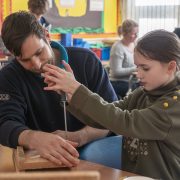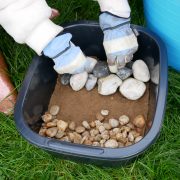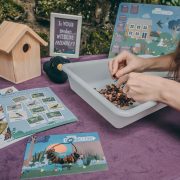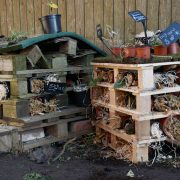Category: Connection to Nature
We love collaborating with partners to find new ways to connect with audiences and deliver our mission of preventing extinction. Through working in partnership we also provide a wide variety of benefits to our community; enabling people to gain skills, support their wellbeing and deliver their own education curricula.
AN AMAZING LEARNING EXPERIENCE
Safety of course is our priority, and we’ve put lots of measures in place to ensure there’s social distancing around the zoo, but that doesn’t mean that a school visit can’t bring learning to life, be playful, and support everyone’s wellbeing.
Whether it’s watching the elephants playing in the water, hearing the lion ROAR, or finding out which animal is the smelliest (tapirs are pretty stinky!)…nothing brings learning about animals to life as much as seeing them here at Chester Zoo.
Students will learn lots by watching animals and reading some of the signs around the zoo. There’s so much to learn about! Here are our top tips for turning a school visit to the zoo into a learning adventure.
Safety of course has to come first and we’ve put lots in place to ensure social distancing around the zoo, but that doesn’t mean that a family visit can’t also be playful, help children learn and support everyone’s wellbeing.
In fact, we believe these things are more important now than ever, so we’ve put together some top tips and special resources to help you get the most out of a visit.
We worked with 146 people from 53 families and together took over 620 positive actions to support biodiversity at school and in the families own green spaces.
Our Wildlife Connections Campaign is all about bringing people together to create safe spaces for UK wildlife. By creating connections from one wildlife-friendly space to the next we can create wildlife highways through our neighbourhoods and protect the precious wildlife that we love.
Between October 2019 and February 2020 we set up Family Wildlife Clubs at five schools local to Chester Zoo, bringing together families to improve their school grounds and own green spaces for wildlife. Through this project we engaged new audiences within our local communities, providing opportunities for them to develop the skills and knowledge to be able to take action for UK wildlife and play their part in improving biodiversity.
The project was funded by the World Association of Zoos and Aquariums (WAZA) Nature Connects Grant which is awarded to international projects that aim to bring families together to experience their natural environment and take action for wildlife.
At each school site we planted mini wild flower meadows, planted trees, built giant bug hotels and made their school grounds a better place for people to enjoy. The families also made animal habitats to take home to make their green spaces better for wildlife, including making mini ponds, mini bug hotels, bat boxes and bird boxes.
By taking these actions to make more and better connected wildlife friendly spaces we can help to combat the threats faced by UK Wildlife, including the loss of suitable habitats and loss of connectivity between habitats. At each school we did basic wildlife surveys before taking action and will support the schools to monitor changes over the coming years and to promote biodiversity on their school grounds and surrounding communities.
The Family Wildlife Clubs brought intergenerational groups together to gain the skills and knowledge to make positive changes for local wildlife. As well as supporting skill and knowledge development, the experience also benefitted the participants personally and in their family relationships.
“I enjoyed spending time outdoors with my son and the group”.
– parent from Sandy Croft School
The knowledge and skills gained through the session encouraged people to take action in their own green spaces too.
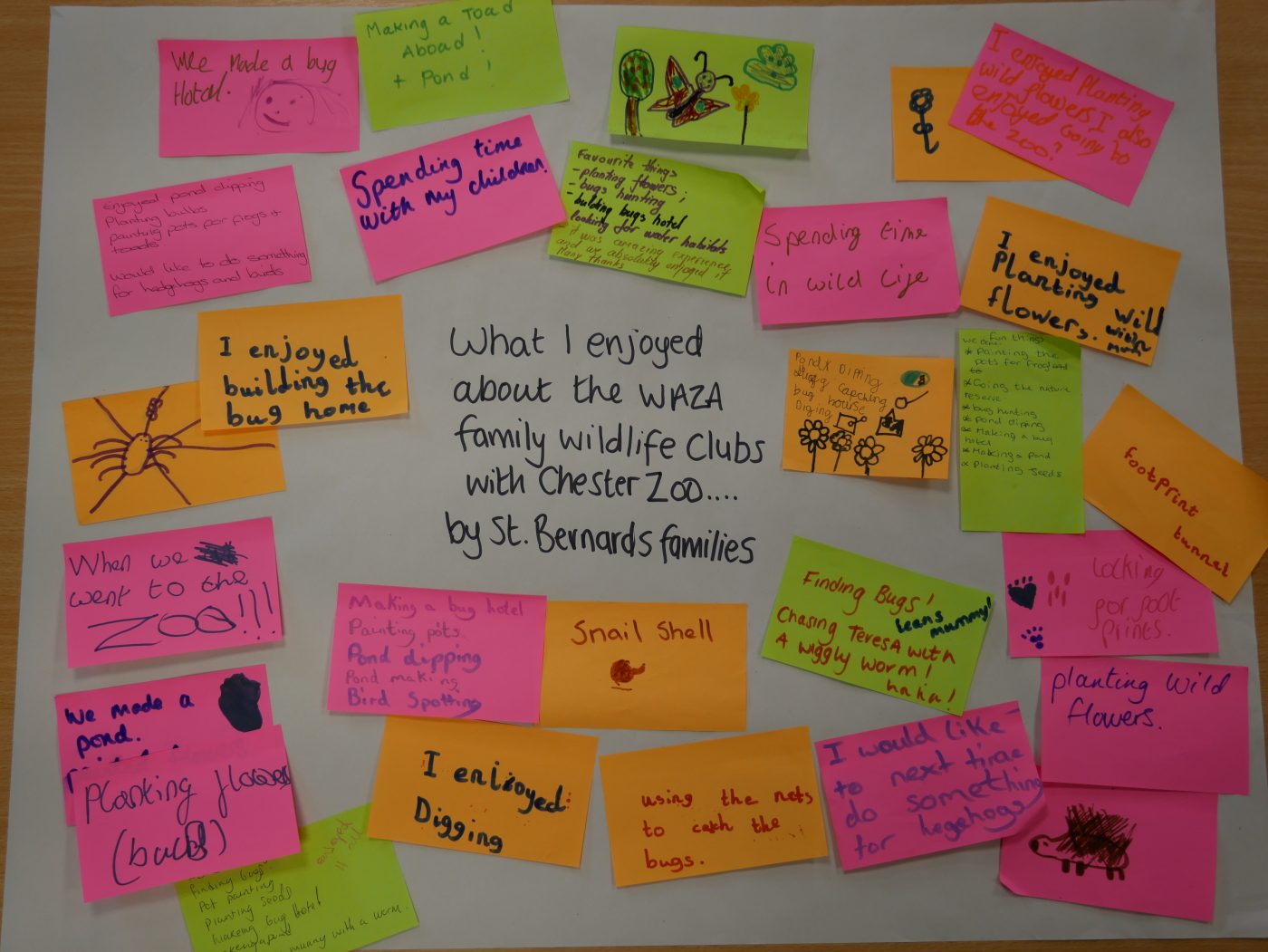
“Using knowledge of different habitats we have implemented some of the practical habitats in our gardens.”
– parent from Liscard Primary School
Our education programmes are an important part of our mission of preventing extinction. They inspire people to care about and, more importantly, take action for the natural world. We deliver a lot of our education activities with people when they visit the zoo, but we know not everyone is able to come to us.
To achieve our conservation mission, it’s important that we reach as many people as possible. So, in 2009, we took the zoo on the road and launched our free Safari Ranger outreach service, taking zoo education workshops out to schools and community groups in our local area.
We started with one Safari Ranger and a handful of workshops for primary school aged children. Over the last decade, our offer and team has grown hugely. We now work across the North West of England and into North Wales. In 2019, we delivered a huge 2,500 workshops engaging almost 80,000 participants ranging from early years groups through to university aged students, and everything in between.
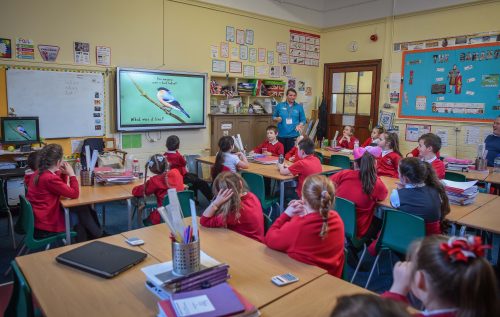
Whilst Safari Ranger workshops can be booked by any school within a 60 minute drive of the zoo, we have particularly focused our projects on those schools who might face additional barriers to visiting. We aim to work with schools who have had limited previous engagement with the zoo and who have high numbers of pupils eligible for free school meals. Projects are linked to one of our main conservation campaigns and aim to empower pupils to act for wildlife, as well as generating learning across the curriculum.
Since the pilot phase, 100s of schools have been involved in taking action for our Sing for Songbirds campaign, our Sustainable Palm Oil Challenge and more recently our Wildlife Connections campaign which focuses on the threats facing UK Wildlife. Each project involves multiple visits from our team to the school and a trip to the zoo. In some cases, families from those schools are also supported to visit the zoo with free tickets and resources linked to their children’s learning.
